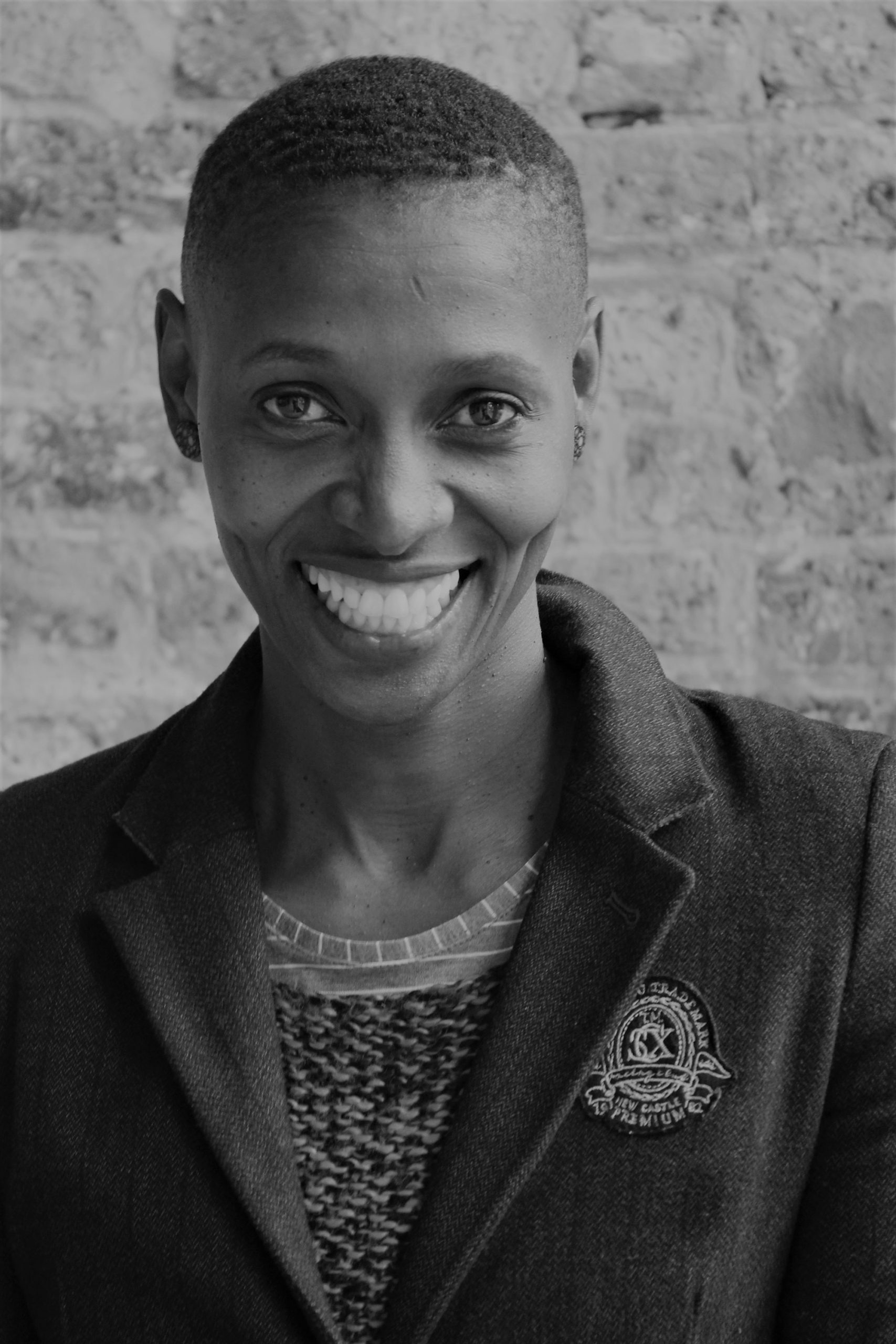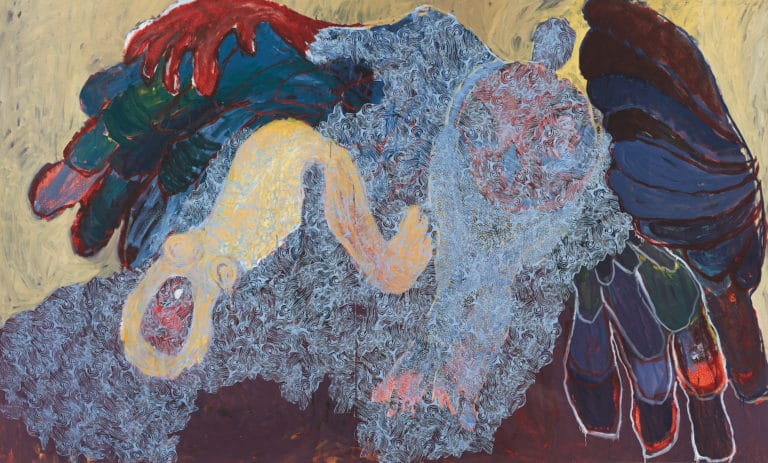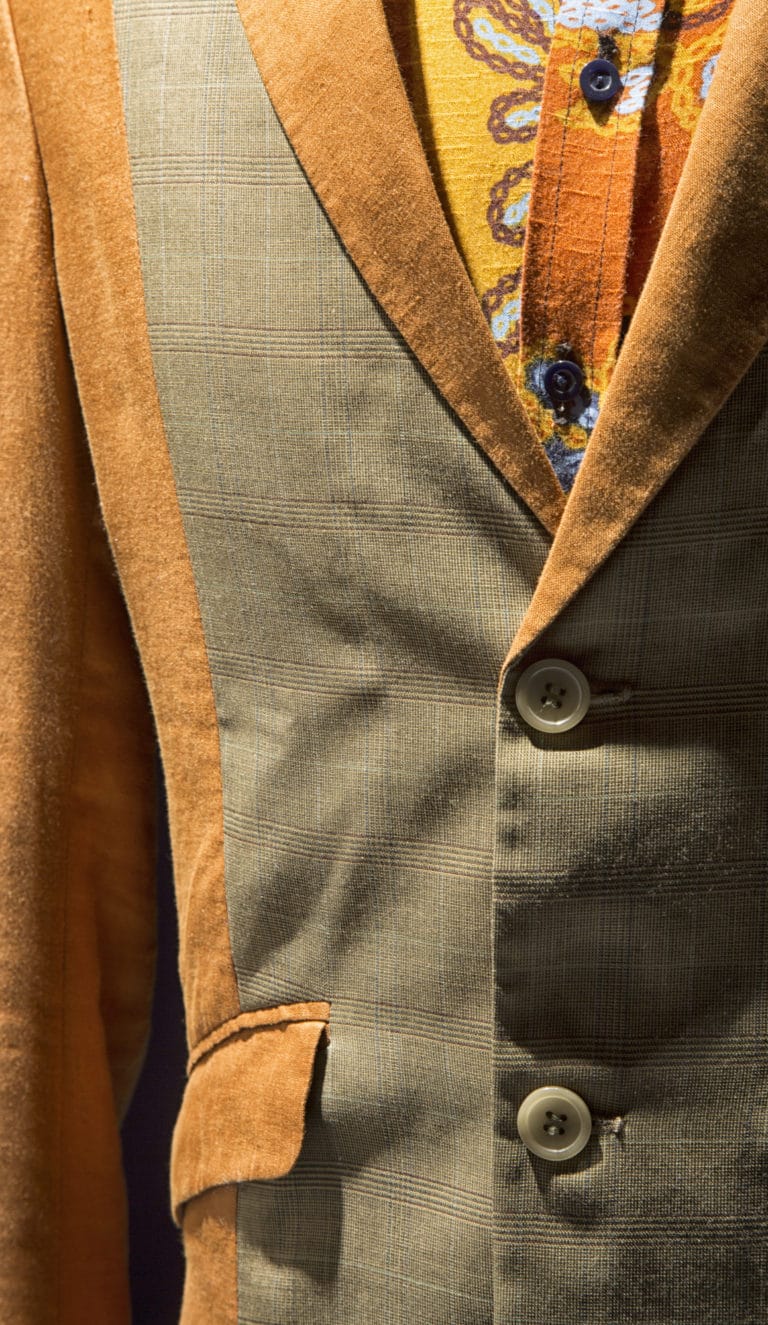Mamela Nyamza is a performance artist, dancer and choreographer born and raised in Gugulethu, Cape Town, South Africa.
Nyamza was trained in dance at the Zama Dance School under the Royal Academy of Dance (Cape Town, South Africa). She furthered her studies at Pretoria Dance Technikon where she obtained a National Diploma in Ballet (Pretoria, South Africa). In 1998 she received a scholarship to study dance at the Alvin Ailey Dance Theatre (New York, USA). Thereafter, she joined the State Theatre Dance Company (South Africa) and participated in national and international performances. Nyamza also attended choreography workshops at the Vienna International Dance Festival. She also received ballet training from Martin Schonberg at the Pact Dance Company (Pretoria, South Africa), attended African Dance workshops by Jamaine Acogny (Soweto, South Africa), and studied a dance course at Sadler’s Wells Theatre (London, United Kingdom).
Nyamza’s performances and choreography are autobiographical based on her experience as a young, black woman who grew up in a township in South Africa.
She also focuses on socio-political themes such as violence, rape and lesbian identity. She interrogates the dance medium of classical ballet and challenges the conventions for traditional dance norms taught in formal dance education and is skilled in multiple dance forms such as: modern dance, African dance, the Horton technique, Spanish dance, jazz movement, mime, flying low technique, release technique, gumboot dance and Butoh.
Select solo and group performances include De-Apart-Hate at Johannesburg Dance Umbrella (Johannesburg, South Africa, 2017), Hatched (Johannesburg and UK Dance Umbrella, 2011; Infecting the City, Cape Town, 2013), I Stand Corrected, in collaboration with UK-based artist Mojisola Adebayo at the Ovalhouse (London, United Kingdom, 2012) and later at the Soweto Theatre, South Africa; Isingqala and Amafongkong, collaborative productions with the Adugna Dance Theatre Company (Ethiopia) at the National Arts Festival (Grahamstown, South Africa, 2011), and African Footprints (2006).




